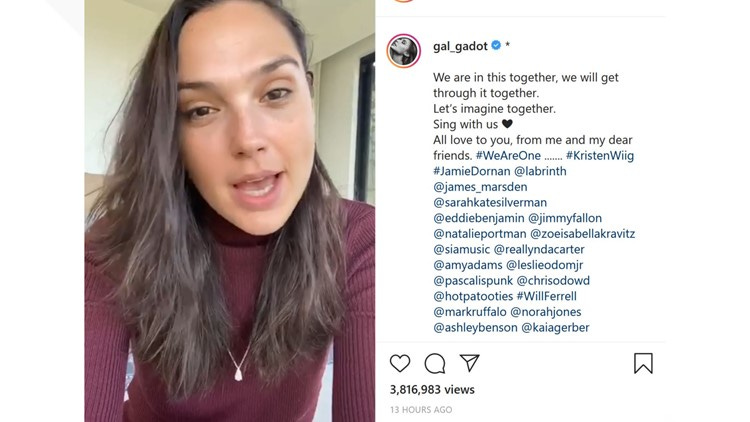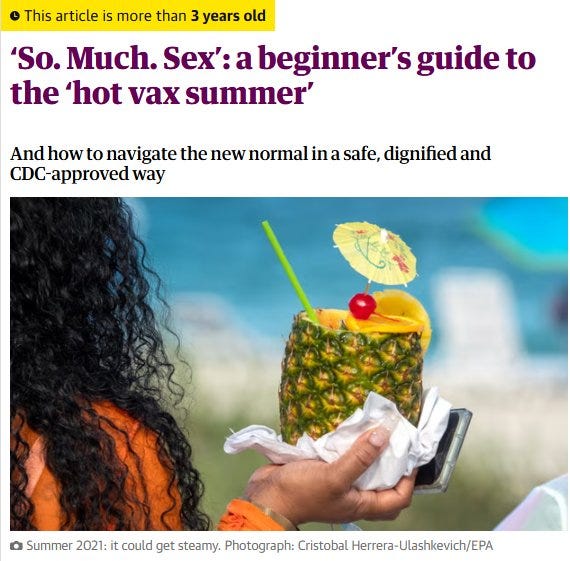As it’s my first post for a while, I think a fitting way to begin is to write about how two snippets from a podcast shaped the way I think about events in two ways: ‘feels fake’ and ‘feels real’.
I’ll start with a few questions:
Why did Barbenheimer feel fake? Why did Bob Dylan plagiarizing his Nobel Prize acceptance speech from SparkNotes feel real? Why did Brat Summer and Trump’s assassination attempt feel fake but the alleged murder of Brian Thompson by Luigi Mangione feel very real?
Why did the pandemic-era celebrity Imagine video feel so fake?
But Kim Kardashian renting out an island at the same time feel real?
Let’s begin
During the pandemic, I had a brief moment where I would listen to new episodes of Red Scare. It’s the only time I’ve actually listened to a podcast how you’re supposed to, tuning in to new episodes with anticipation. And even though we all know how the Red Scare story ended up, for a moment there it really served a purpose. Listening to two hungover/xanaxed voices talk shit about our shared timeline felt very cathartic. It was also intimate, immediate, and irreverent when little else was, a kind of hipster samizdat.
Anyway, I come to bury Red Scare, not to praise it.
I don’t really remember many of the episodes anymore and lost interest pretty quickly, but I like that two brief moments from my brief pandemic-era listening have stuck with me. For some reason, they’ve helped me make sense of things.
“Feels fake”
“Feels fake” comes from Red Scare #220: Coupvid 19, the episode they recorded just after the “crazy, sad day” of January 6th, 2021.
After loosely discussing why there aren’t prodigies like Mozart anymore, the hosts begin to talk about the storming of Capitol Hill. I think Anna admits that she had to google if Capitol Hill and the White House are the same.
They talk for a while about what they – and we – had seen on the news, but then Anna dismisses the event like this:
“Um, but ultimately I think all of this feels very fake and gay to me.”
Luckily, I didn’t take up “feels gay”, but I really liked this idea of “feels fake”, especially about something as event-ful (as in impactful is supposedly full of impact) as January 6th.
So I found myself rasping “feels fake” with a vocal fry whenever stuff came up in the news that had the glean of January 6th. Not that January 6th was ‘fake’ in any Kubrick on the Moon way, but how it happened, how it was reported on, and, by extension, the consensus that was reached by most people – all of that felt fake.
“Feels like now”
“Feels like now” comes from Red Scare #227: Can't Get You Out of My Head, featuring Adam Curtis, the OG Gigafried Turbonormie.
I remember lying on my bed in 2021 laughing at how odd and surprisingly unhinged Adam Curtis sounded compared to his usual deadpan voiceover. It’s well worth a listen just for the spectacle: the contrast between what sounds like a glue-huffing chain smoking anorak beamed in from the bowels of the BBC and the ultra-lackadaisical Red Scare interviewers. But the bit that stuck with me is when he said this:
“What art and culture is really good is about capturing the mood of now. I don't think it really is very good at changing the world. It captures now and that then inspires people to go off and try and make sense of that. But it's really good at the getting the now, that's what it's good at.”
I then took on this Curtis (mis)quote and began mumbling how something “feels like now” with the same out of breath psycho-suburban delivery whenever I saw a rare piece of art or news that felt fitting of this title.
Now I know I’m deliberately misinterpreting what Adam Curtis said, but I think that this description of his can also be extended to events as well as art and culture, and that “feels like now” can be simplified into “feels real” as a counterweight to the Red Scare hosts’ “feels fake”.
Because stuff that feels like now is also stuff that feels real. It feels like something happening right at our particular moment in time, not a false view of the world or an anachronistic one or something that’s been overly massaged by interpretation.
So, these are my two criteria:
“Feels fake” vs “Feels real”
Ever since then, I’ve considered these two declarations to be enjoyable and indispensable tools for sorting the mediated world.
I just want to explain briefly what I think I mean by things that feel fake and things that feel real, and how they relate to where we’re at in 2025.
What feels fake?
Let’s take the original incidence of ‘feels fake’, January 6th, and what characteristics about it feel fake, and how that same feeling resonates with other events.
These are the main reasons I think an event like January 6th feels fake:
Highly mediatized i.e. lots of cameras were already there to film events.
The event itself neatly fits into an existing media narrative.
No convincing counter-narrative forms.
These three criteria combined leave us with this uneasy feeling.
January 6th felt fake because it fit way too neatly into the idea that many media people had about the concrete, violent threat Trump and his supporters posed.
But as Adam Curtis has taught us, the world isn’t neat and events aren’t neat. Things happen for weird and confusing reasons.
Events feel fake when they seem too pre-chewed and easily digestible. But also they feel faker when the counterarguments or challenges rely on conspiracy. Because, as Adam Curtis also taught us, conspiracy theories are often just another way of sorting events into neat, easily digestible stories.
Perhaps this feeling of fakeness and the equally unnerving conspiratorial thinking are both driven by the same anxieties. Maybe most people just want to make sense of reality as much as we do. This anxiety compels them to try to force reality into more understandable forms, for the sake of their own and everyone else’s sanity.
A really important event that I believe felt fake for a lot of people was the pandemic.
Why the pandemic felt fake
For many, I believe the pandemic ruptured an already weakened social contract, of trust in government, the news, and social media, and I think one of the reasons for this was precisely because of this fake feeling that surrounded it, that was also amplified by the size, reach, and duration of the event.
Using the comparison of January 6th, the pandemic was beyond highly mediatized, it became hyper-mediated due to our reliance on social media and screens; it was very quickly forced into a neat media narrative; and the vast majority of the counter-narratives that emerged focussed on conspiracies.
Ask anyone who lived through the pandemic what they think about it now, and you will probably hear a lot of frustration, confusion, anger, sadness, and just generally unresolved feelings. It’s very rare to hear someone who won’t have someone else to blame for what happened. We were told a certain thing, but that narrative never felt like the full explanation. And I believe it still makes us feel uneasy to this day.
What feels real?
In the same way as conspiracies can often feel as fake as the accepted story, the problem with the pandemic is that not only did the pandemic feel fake, but the return to ‘normality’ since has felt extra fake. It was like an endless product launch that kept getting delayed and delayed, and all we got were an inbox filled with press releases.
A great example of this was the Oscars in 2022. After a hybrid, socially distanced crap fest in 2021, the Academy returned with its first proper meatspace ceremony in 2022. I said before that ‘feels fake’ might be caused by an anxiety trying to force an understandable reality onto us. The Oscars felt like a variation of that: a rushed attempt to signal a return to normality. The whole thing stank with this forced forgetting of the pandemic, the cutting off of the traumatic longtail, the hot vax summer, the stage managed rehabilitation of the live event. And then Will Smith slapped Chris Rock.
Now I found the slap really weird and disturbing, and I’m not condoning violence or saying that it’s the only way something feels real, but that slap felt like the first real thing for a long time.
Adam Curtis talked about ‘capturing the mood of now’. And I think that’s pretty fitting.
While everyone was busy plugging the outside world of football tournaments and festivals as a very excellent place to return to, there was a general perception that violence was also increasing after the pandemic. You can find reports about increased football violence, violence against teachers, generalised disorder as society – mentally damaged by the pandemic and government decisions – began to reemerge and relearn social interaction.
That’s why I think the slap felt real.
So if there’s criteria for an event that ‘feels real’, it’s something like:
Unexpected, surprising, or shocking.
Appears to challenge or reveal something about the status quo.
Resists easy interpretation or explanation after the fact.
Instead of things that feel fake, that often feel like they are astroturfed and airdropped in from above, things that feel real seem like they are tapping into some emotion or thought that many people are sharing but that no-one can articulate. They feel like a sudden glimpse at something previously hidden in plain sight.
So what about now?
Before Trump’s re-election, I would’ve generally opined that the fakest stuff around is usually the product of big studios, mainstream media, and prestige journalism.
But now I can see that, in the words of Adam Curtis, this was a fantasy.
If you want to see stuff that feels fake now, watch Joe Rogan talk about Elon Musk’s salute, read the New York Times profile on Curtis Yarvin, try to endure the Red Scare hosts talking to Megyn Kelly.
If you want to see something that feels real, watch Bill Burr make Jimmy Kimmel squirm by yelling “Free Luigi!”
After Trump’s election, Peter Thiel published an article in the Financial Times titled ‘A time for truth and reconciliation’ where he basically argues that Trump 2.0 will offer an ‘unveiling’ of some classic conspiracies: JFK, Epstein, the origins of Covid, and the control of information in the media and on the internet.
I think Peter Thiel is right, but the great unveiling won’t be of these pretty bog-standard conspiracies, it will actually be of the powerlessness of Big Tech itself. It will be finally revealed to be weaker, more directionless, and more idiotic than we thought.
Adam Curtis has repeatedly said how Big Tech is actually useless. He said that Big Data was a con. It never actually gave any answers about the world, but only about the data it analysed. He said that social networks aren’t the all-powerful behavioural mind control machines we feared they were. All they can do is offer targeted advertising. I think he’s about to be proven right.
The ‘power’ of big tech exemplified in the desperate switch to Trump and AI is the fakest feeling thing going right now. But that’s for another post another time. Those boys in Silicon Valley have run out of ideas, just look into their eyes. They’re fried on feels fake.

And in stark contrast, I just want to reiterate how real the public reaction to Luigi Mangione has felt.
Unexpected, surprising, or shocking.
Appears to challenge or reveal something about the status quo.
Resists easy interpretation or explanation after the fact.
A terrorist who doesn’t fit any of the descriptors of a terrorist. An expression of impotent rage. A one page manifesto that reads like a first draft. A confusing and un-orientable internet and Twitter/X history. The first consumer terrorist. The first tech bro terrorist. An affluent class warrior.
Again, I’m not condoning violence ever, but rather just pointing out how Bill Burr is making all other ‘edgy’ comedians, whether they’re from the Roganverse or late night, look kind of timid.
A new type of journalism
What I hope for, as part of Peter Thiel’s predicted great unveiling, is that we find a new space to create things and discuss things, away from the feels fake of the Oscars and the feels fake of the griftosphere, and especially the feels fake of social media and AI.
Because I genuinely think podcasting is a good format for talking about things in this way, at a slight remove from what we consume. It worked for me during the pandemic for that short time I listened to Red Scare, and I think it can work again now.
Because we're going to be throwing off a lot of the old culture of feels fake, but we're already sensing that the ‘new’ culture is made up of a lot of the same oppressively fake feeling. So it’s up to us to “capture now and inspire people to go off and try to make sense of it.”
I will try and write more about AI, as I promised to do, in my next post, and I’m going to try and keep it shorter too!
Here is a nice quote from Adam Curtis on Red Scare that I’ll leave for now as I run out of steam.
“I think every age has a moment when its journalism becomes boring and it dies and out of that comes a new kind of journalism that connects with people because it connects as much emotionally.”












